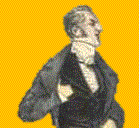 George Bryan Brummell (1778 – 1840) is one of the most beloved persons of the Regency period. He was a celebrity in his time, and is famous even today, e.g., as the hero of a detective series. You do know him of course, as the arbiter of fashion, the personification of Regency dandyism. You know that he is credited with introducing the modern man’s suit, that he made daily bathing fashionable, and that it took him about five hours to get dressed and ready. But do you know these 10 facts about Beau Brummell? Continue reading
George Bryan Brummell (1778 – 1840) is one of the most beloved persons of the Regency period. He was a celebrity in his time, and is famous even today, e.g., as the hero of a detective series. You do know him of course, as the arbiter of fashion, the personification of Regency dandyism. You know that he is credited with introducing the modern man’s suit, that he made daily bathing fashionable, and that it took him about five hours to get dressed and ready. But do you know these 10 facts about Beau Brummell? Continue reading
Author Archives: Anna M. Thane
Top 5 Things to Do for Regency Enthusiasts at Lake Como / Italy
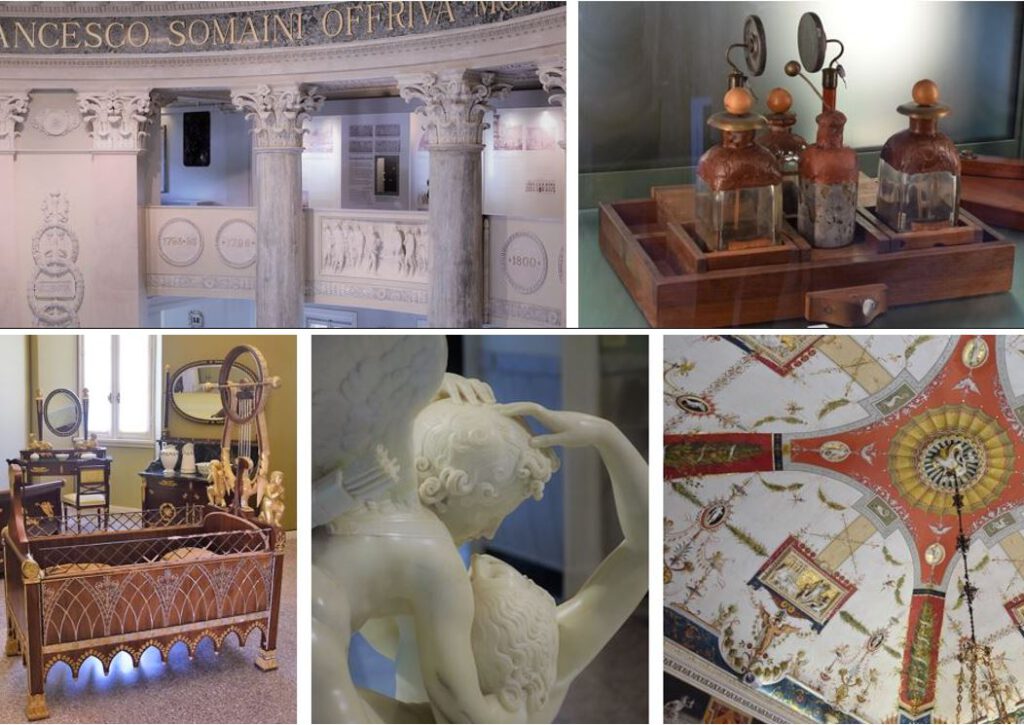
It’s time for Regency Enthusiasts to do the Grand Tour to Italy!
However, why not leaving the beaten track to Rome and Florence, and enjoying your perfect history-holidays at Lake Como in Northern Italy instead?
The area offers many great sights with a Napoleonic or even Royal British connection.
Follow me to the Top 5 things to do!
Object of Interest: The Devil Among the Tailors
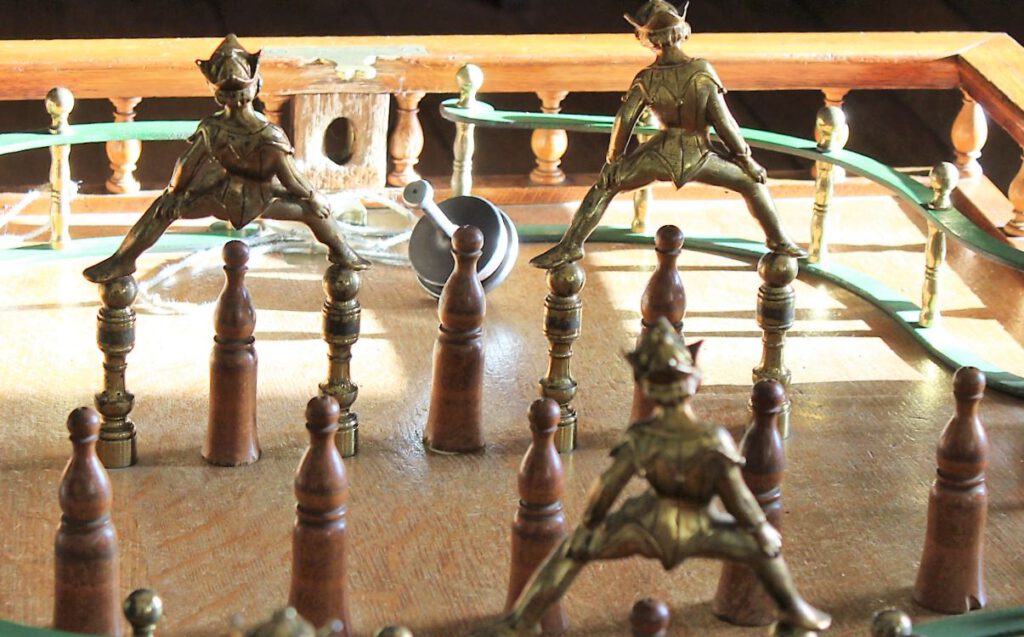
Playing with a top and skittles was popular in the 18th century. Children and grown-ups alike tested their skills at a game called “The devil among the tailors”. The 18th-century game is different from today’s version that is still around in some pubs in Britain. It is much larger, and you need more skills to score points. How was it played? And what’s in a name?
Continue readingWinter Aconite – a Fashionable Plant of the 18th Century
 The bright yellow winter aconite provides welcome colour to British gardens early in the year. Winter aconite blooms as early as January, and grows en masse under trees. Did you know that the 18th-century fashion for landscape gardens brought the little plant into fashion? Continue reading
The bright yellow winter aconite provides welcome colour to British gardens early in the year. Winter aconite blooms as early as January, and grows en masse under trees. Did you know that the 18th-century fashion for landscape gardens brought the little plant into fashion? Continue reading
Read like it’s 1821: 10 books that hit the book market 200 years ago for you to enjoy
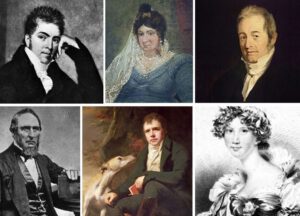 If you were a time traveller in 1821 longing for a good read, what would be your options?
If you were a time traveller in 1821 longing for a good read, what would be your options?
Check out my list of popular fiction and non-fiction releases. I have added links to online versions of each book, so you can actually read like its 1821!
Bonus feature: Suggestions for further reading on each topic from today’s experts on the 18th century.
Discover Lord Mayford’s Travel Adventures in 1810
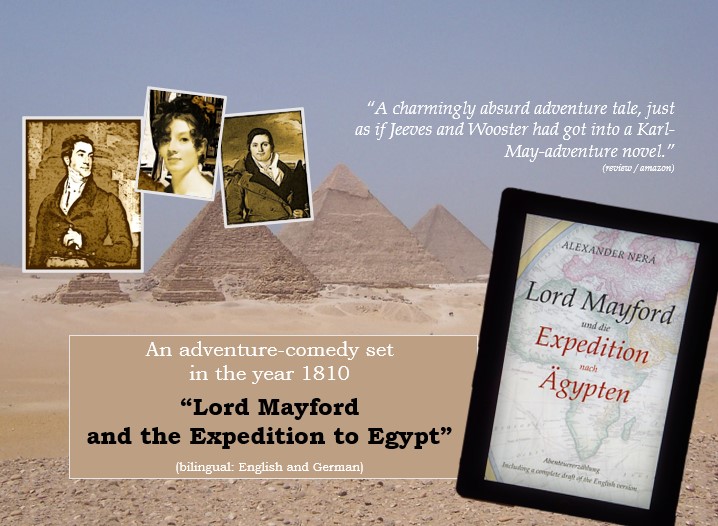
I am happy to welcome back Alexander Nerá to Regency Explorer. He is the author of “Lord Mayford and the Expedition to Egypt“, a travel adventure and comedy set in 1810.
The novella started out some years ago as a fictive diary on my blog. It has now been published in both English and German. As I am interested in all things Regency and enjoy the story’s P.G. Wodehouse-style humour, I asked Alexander for an interview. Learn more about the historical context, the set of characters, and a famous 19th-century author as a source of inspiration.
When George IV. spent £24,000 on an outfit, and other events of 1821
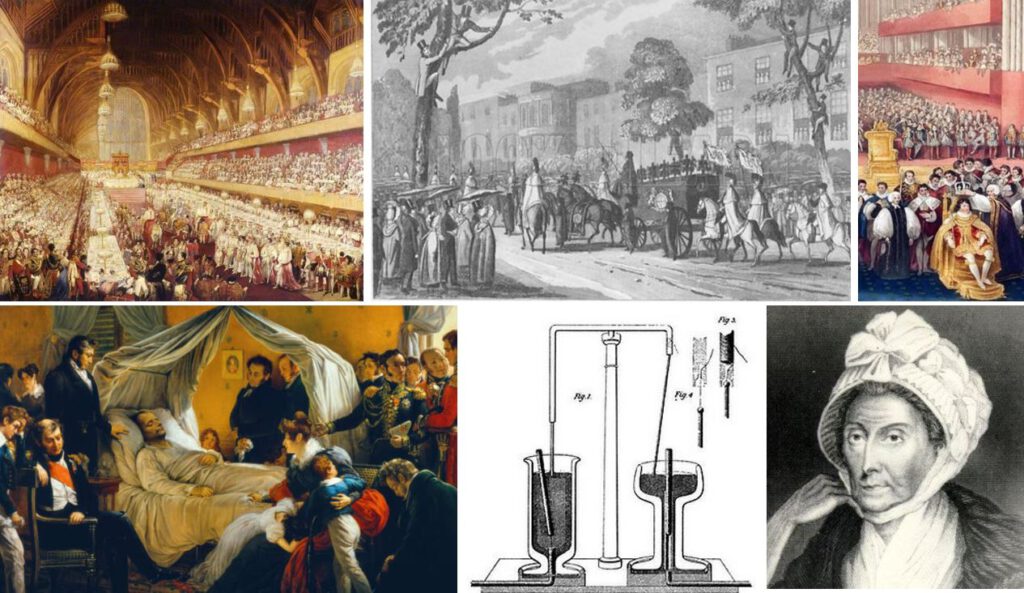 The death of Britain’s archenemy, an extravagant Coronation, and the building of the very first electric motor are among the events of a year still marked by the economic depression after the Napoleonic Wars.
The death of Britain’s archenemy, an extravagant Coronation, and the building of the very first electric motor are among the events of a year still marked by the economic depression after the Napoleonic Wars.
With George IV. ascending the throne, the Regency period comes to an end. The world has changed a lot since he ruled the country as Prince Regent from 1811, and even more since the period’s key-persons were born.
Which political, scientific, social, and literary events and anniversaries are of interest to Regency Enthusiasts in 2021? Have a look at my list of 21 events of 1821 here: Continue reading
As a time traveller to the Regency period, would you be able to enjoy coffee “to go”?
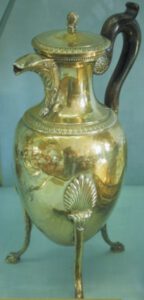 “Nobody, I fancy, can be fonder of Coffee than I am.”
“Nobody, I fancy, can be fonder of Coffee than I am.”
– Count Rumford (inventor, soldier, statesman, spy, womanizer, and philanthropist)-
Today, we are used to enjoy coffee everywhere, and the caffeinated drink “to go” is an added delight to walking in the streets or riding on a train. In the late 18th century, there were, of course, coffee houses in the cities. But would you have been able to take coffee with you on a trip or on a campaign?
Thanks to Sir Benjamin Thompson, Count Rumford (1753 – 1814), coffee could be prepared to be preserved for a considerable time, and you would have been able to reheat it, or to enjoy it cold wherever you wanted. Find out here how one of the most eccentric and dazzling persons of the 18th century prepared his beloved coffee as a “to go” version. Continue reading
Object of Interest: A Currency Calculator
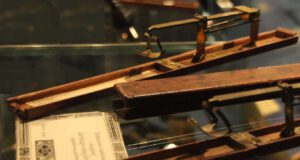 For British merchants doing business with France, the French Revolution brought a special challenge: Revolutionary France introduced the metric system of weight and measures in 1795, and made the franc the single monetary unit in the country in 1803. Thus, the value of British money had to be reevaluated for export and import, and adjusted to the new system of weight and measures. How could this be achieved? Continue reading
For British merchants doing business with France, the French Revolution brought a special challenge: Revolutionary France introduced the metric system of weight and measures in 1795, and made the franc the single monetary unit in the country in 1803. Thus, the value of British money had to be reevaluated for export and import, and adjusted to the new system of weight and measures. How could this be achieved? Continue reading
The pioneering years of the horse-drawn railway
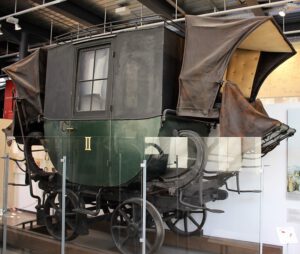 With regards to transportation, we often think we went from carriages to steam railways in one single step. As a matter of fact, there is a “missing link” between carriages for the road and steam railways: the horse-drawn railway. It was first used in collieries, but soon passengers were transported, too. Continue reading
With regards to transportation, we often think we went from carriages to steam railways in one single step. As a matter of fact, there is a “missing link” between carriages for the road and steam railways: the horse-drawn railway. It was first used in collieries, but soon passengers were transported, too. Continue reading
